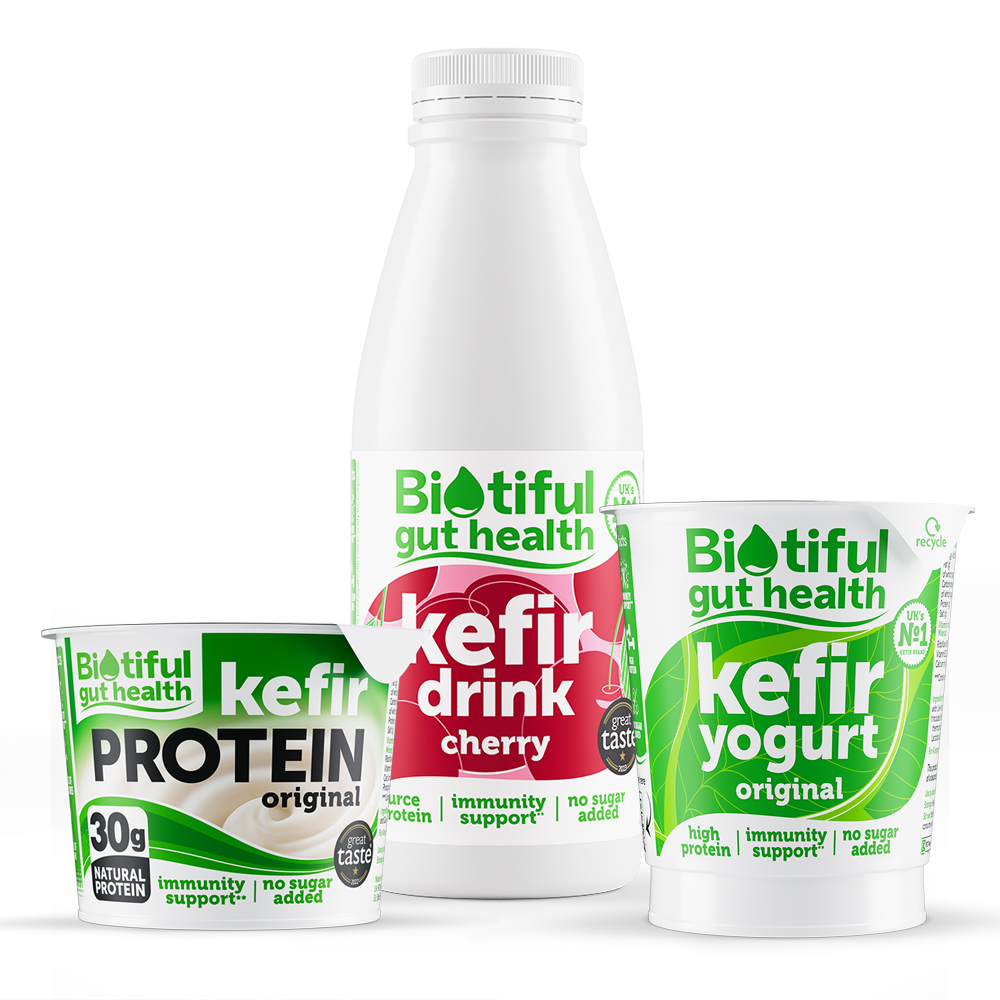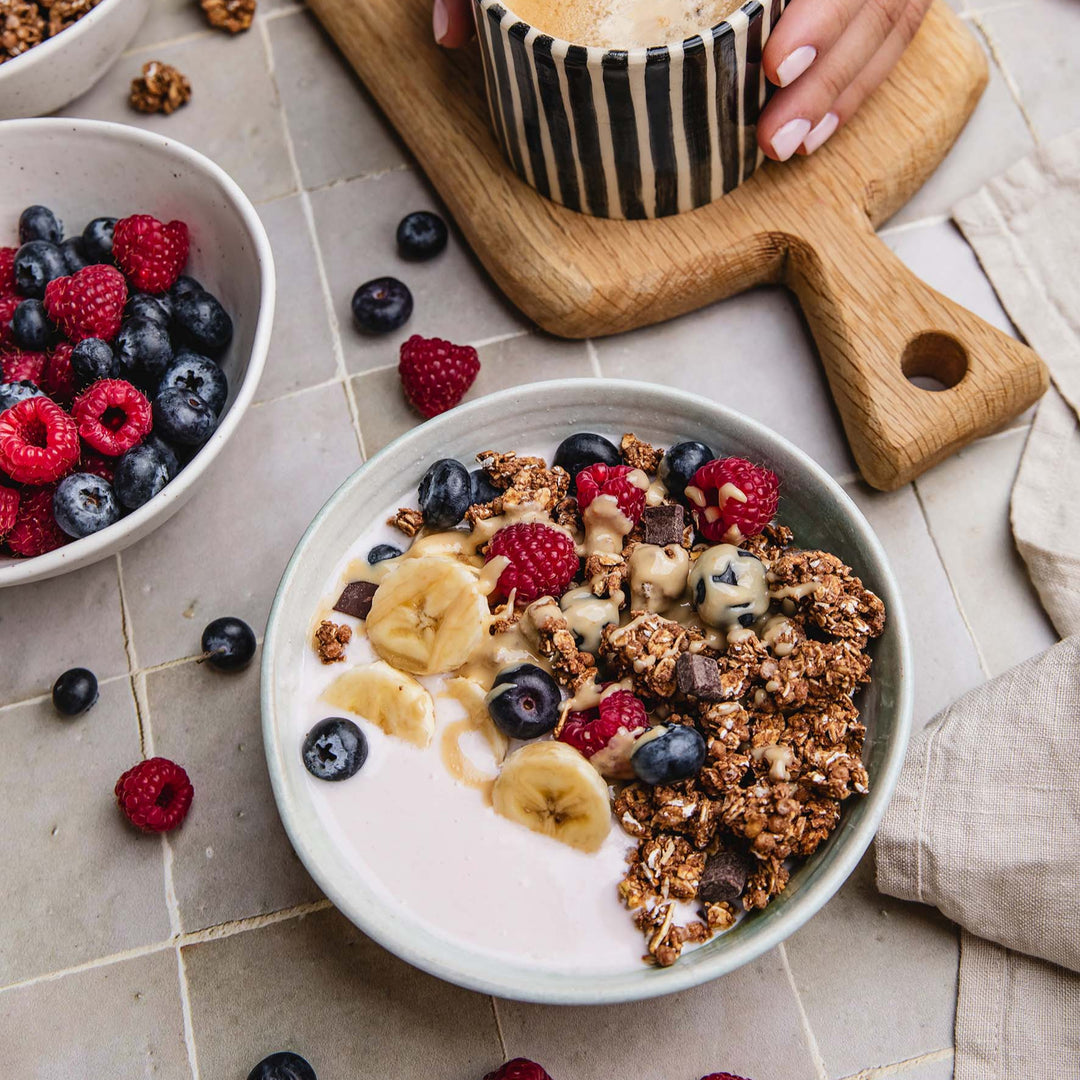The Gut-Brain Connection and How to Support Your Mood

We’ve all had that feeling when we feel nervous and get butterflies in our stomach. That is the gut-brain connection! We often refer to the gut as our second brain because the gut and brain are derived from the same foetal tissue. One part becomes the central nervous system, and the other part becomes the enteric nervous system—the gut. The enteric nervous system is the network of nerves that spans your entire digestive tract, from your mouth all the way to your anus. As the foetus develops, this tissue separates but remains connected by our 10th cranial nerve, called the vagus nerve.
There are as many, if not more, neurons in your gut as there are in the spinal cord, and it is lined with nerve endings. The gut and brain communicate in numerous ways, and some bacteria use these nerve endings to communicate with the brain. The communication between the gut and via the gut microbiome is influenced by our food choices and what we eat
Our gut microbes are responsible for producing many vital molecules, so it’s important to feed and nourish them well. There are so many gut microbes that they form a virtual organ weighing 1.5 kilograms—the same as the brain.
Our gut microbes help us to:
- Detoxify
- Produce vitamins and minerals
- Break down our food
- Keep our gut healthy and support motility
- Regulate metabolism
- Support a positive mood
- Enhance energy and longevity
- Strengthen immune function
So, we want to nourish our microbes and feed them well.
In this blog, we are focusing on mood and how we can support it through the gut-brain connection.
Gut Microbes and Mood
A fascinating study conducted by John Cryan at the University of Cork found that in a germ-free environment, where there are no microbes, the brain does not develop normally. We need our microbes. They can even produce neurotransmitters like GABA (to help calm us), serotonin (our feel-good hormone), and dopamine (for pleasure, satisfaction and motivation).
Thankfully, there’s so much we can do to support our gut-brain connection, improve mood, and reduce feelings of stress and anxiety. One of my favourite studies demonstrating this is called the Psychobiotic Diet. It is incredibly empowering, showing how much we can do to support mental health and good mood.
The Psychobiotic Diet
The Psychobiotic Diet is designed to improve mood by supporting the gut microbiome. It incorporates both plant-based and probiotic foods.
Plant-based foods include: fruits, vegetables, nuts, seeds, herbs, legumes, grains, spices, and teas.
Probiotic foods include: yoghurt, kefir, sauerkraut, kimchi, apple cider vinegar, etc.
This study demonstrated that the types of food we eat can help us manage stress and anxiety. Participants who followed the Psychobiotic Diet for four weeks reported lower perceived stress, with those who adhered most closely experiencing the greatest benefits.
Example meals from the diet include:
Breakfast: Porridge with ground flaxseeds, almond butter, blueberries, and kefir
Lunch: A bowl of dhal with greens and a dressing made from apple cider vinegar
Snack: An apple with walnuts or some edamame beans
Dinner: A vegetable curry with wholegrain rice and yoghurt
The Mediterranean Diet
The Mediterranean Diet is another excellent choice for improving mood and overall well-being. It has been shown to reduce depressive symptoms. This diet includes fruits, vegetables, nuts, seeds, herbs, legumes, fish, extra virgin olive oil, and seasonal produce.
In both of these diets, there was no ultra-processed foods or highly sugary and sweet foods.
Start Small: Focus on One Meal
If this all feels overwhelming, start by focusing on just one meal a day.
In one trial involving 300 participants who were overweight and had type 2 diabetes, a whole-food, plant-based meal was introduced just once a day. Participants were also educated on the importance of incorporating plant foods. This intervention not only improved cardiac risk factors but also reduced depression and anxiety while enhancing productivity. Adding a probiotic food to this meal can further nourish the gut, support mood, and reduce anxiety.
If even one meal a day feels like too much, try increasing the amount of plants you eat by just one portion daily. Even this small change can be beneficial. One of my favourite studies shows that adding just one extra portion of fruit or vegetables a day can increase happiness and life satisfaction, provided you are consistent.
Easy Wins to Get Started
When I work with clients, I suggest purchasing three simple foods to eat regularly. This makes it achievable and straightforward:
- A punnet of blueberries: Easy to eat straight from the packet or added to any meal.
- A bag of pre-washed greens: Take one large handful and add it to your meals.
- Fermented food like Biotiful Kefir: Use it with breakfast—mix it into porridge, top granola, add it to a smoothie, or enjoy it straight from the jar.
These are simple, quick wins to support your gut and mood.















